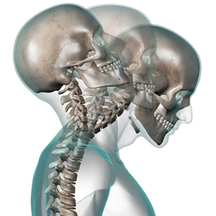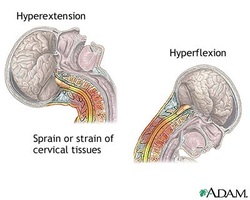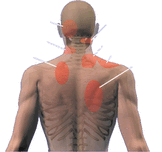
This article answers the question ‘what does whiplash feel like’? Whiplash is a type of injury that occurs in the neck region often due to a car accident. A whiplash injury is caused when a person’s head is moved forward and backward in at speed pulling and damaging the muscles and ligaments in the front and back of the spine. This can cause various levels of injury in the neck and shoulder region of the body.
COMMON EFFECTS
Many people ask themselves, what does whiplash feel like? The common symptoms of whiplash are headache, stiffness and neck pain. These symptoms often occur from 12-72 hours of the injury occurring. Other common symptoms of whiplash include pain that can radiate away from the spine especially if a disc affected, blurred vision, bleeding in the ears, loss of the ability to turn your neck and difficulty in moving the head from side to side.
COMMON EFFECTS
Many people ask themselves, what does whiplash feel like? The common symptoms of whiplash are headache, stiffness and neck pain. These symptoms often occur from 12-72 hours of the injury occurring. Other common symptoms of whiplash include pain that can radiate away from the spine especially if a disc affected, blurred vision, bleeding in the ears, loss of the ability to turn your neck and difficulty in moving the head from side to side.

Whiplash injuries can be categorised into two types - acute whiplash and chronic whiplash. The common symptoms of acute whiplash are neck pain, swelling, stiffness, tenderness of the back, loss of movement in the neck region, and headaches. Other effects of this type of whiplash injury include lower back pain, numbness in the arms and hands, muscle spasms, tiredness, dizziness, difficulties in swallowing food, vertigo, paraesthesia and tinnitus.
CHRONIC WHIPLASH
In a case of chronic whiplash the symptoms persist for a long time. Mostly the whiplash injury, if treated properly, might exist from 72 hrs to 3 weeks, but in severe cases it can last from 3 weeks to 12 months. This can be very annoying and also the pain, if left untreated, may lead to other difficulties. Common effects of chronic whiplash are neck pain and stiffness, persistent headaches, dizziness, paraesthesia, anxiety and depression.
CHRONIC WHIPLASH
In a case of chronic whiplash the symptoms persist for a long time. Mostly the whiplash injury, if treated properly, might exist from 72 hrs to 3 weeks, but in severe cases it can last from 3 weeks to 12 months. This can be very annoying and also the pain, if left untreated, may lead to other difficulties. Common effects of chronic whiplash are neck pain and stiffness, persistent headaches, dizziness, paraesthesia, anxiety and depression.

The neck pain felt by an injured person will feel like an aching pain that will persist continuously for a long time. This also leads to decreased movement in neck causing stiffness. The neck pain spreads slowly to the shoulders and also to arms and hands causing numbness. A reduction in concentration and sense of balance can lower the clarity of thought in an injured person. Sleep deprivation due to severe pain and fatigue can also occur.
Whiplash injury leads to lot of other conditions in the body such as interscapular pain, dysphasia, vestibular, auditory, and visual complaints. When you have been injured in a car accident it’s best to check whether you could have a whiplash injury. Many people don’t know what whiplash feels like and therefore won’t be sure of which symptoms to look out for.
Whiplash injury leads to lot of other conditions in the body such as interscapular pain, dysphasia, vestibular, auditory, and visual complaints. When you have been injured in a car accident it’s best to check whether you could have a whiplash injury. Many people don’t know what whiplash feels like and therefore won’t be sure of which symptoms to look out for.

This article, what does whiplash feel like?, was compiled by Howells Solicitors, the Whiplash Claim specialists in the UK. Find out more about us by visiting http://www.whiplashclaimssolicitors.co.uk/
